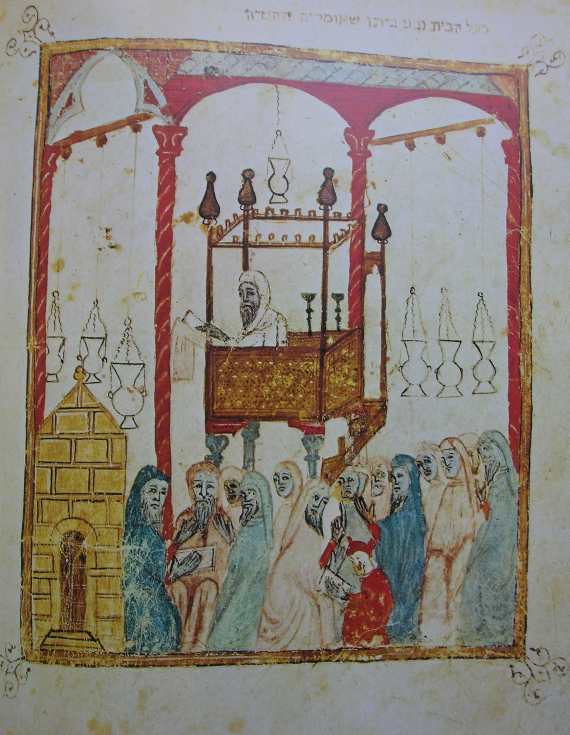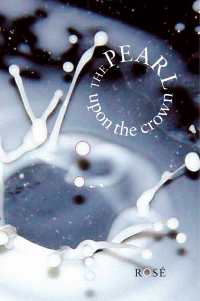WHAT IS THE JEWISH PASSOVER
 Sarajevo
Hagadah, Spain, 15th Century
Sarajevo
Hagadah, Spain, 15th Century
Pesach marks the liberation of the Israelites from bondage in ancient Egypt. The customs and observances around the holiday are designed to help Jews experience, in a symbolic way, the tribulations and ultimate redemption of their ancestors.
The story of what is the Jewish Passover and the events surrounding it are recounted in the Book of Exodus, chapters 1-15, of the Hebrew Bible. It is written that after two hundred years under the brutal yoke of the Egyptian pharaohs, G‑d witnessed the people's misery and summoned Moses to deliver a message to Pharaoh: "Send forth My people, so that they may serve Me.” Pharaoh would not countenance the words of the Lord as related by Moses. In the face of repeated warnings, Pharaoh ignored G‑d’s command. As a result of Pharaoh's obstinance, the Lord set down upon Egypt ten crushing plagues, which destroyed much of their means of sustenance.
 14th
century Spanish Haggadah
14th
century Spanish Haggadah
It is written that on 15 Nissan, the Almighty issued a final plague on the Egyptians, killing the firstborn of each household while “passing over” the homes of the Children of Israel, and exempting them from this fate. This is the origin of the holiday's name.
The final plague broke Pharaoh’s will and he demanded that the Hebrew slaves leave Egypt immediately. The emancipated slaves left in such a hurry that the bread they baked for the journey did not have time to rise; thus the tradition of eating unleavened bread, or matazh, on Passover. It is said that "six hundred thousand adult males, plus many more women and children, left Egypt on that day," commencing the journey to Mount Sinai and their drive towards freedom in the service of G-d.
Passover Service
While traveling in foreign parts
Avoiding arrows dodging darts
And guided by some ancient charts
I bought from an Arab
I came across a manuscript
Half buried in a dusty crypt
Called exodus from old Egypt
Inscribed on a scarab
As I remember it the Jews
Built pyramids and sang the blues
So Pharaohs could forever snooze
Above the baking sand
Egyptian lords embalmed in spice
Lay in eternal Paradise
While Jews their lives a living sacrifice
Slaved in a foreign land
And one was born named tongue-tied Moses
One chosen by the God of the long noses
To free his people from the rubber hoses
The Pharaoh's men would wield.
By trick of fate he chanced to be
Raised in Egyptian luxury
Brought up within the Pharaoh's family
And one day God revealed…
But let's all drink a toast to Moses
To the God of the long noses
And one day God revealed his plan
To free His people from the Man
And thus to Moses he began:
“Early tomorrow morn
Rise up and go to Pharaoh's door
Take brother Aaron as your orator
Say let my people go we slave no more”
And deep as a French horn
God's mighty voice in anger boomed
God who appeared that day costumed
As bush that would not be consumed
Although it burned in flame
So Moses eighty years of age
Stepped up upon the Pharaoh's stage
To free his people from their prison cage
He called upon God's name
And gave his staff a little shake
And hurled it down as it would break
And lo it turned into a snake
Then Pharaoh gave a sign
And his magicians threw their rods
Which turned to snakes in writhing squads
But Moses' snake ate all the other bods
On each one did it dine
Let's drink to slavery's abolition
To Pharaoh's mummy's slow decomposition
But Pharaoh would not let them go
And thus the Lord spake unto Mo:
“Stretch out thine hand you and your bro
And wherever waters flow
They will be turned to blood” and lo
It came to pass exactly so
Before the peoples' eyes, before Pharaoh
And still his word was No
And so the Lord sent frogs, then lice
Then flies, then cattle paid the price
All of them dead to be precise
Then boils on everyone
Then hail, then locusts filled the air
But still the Pharaoh didn't care
He'd say “Go free” caught up in his despair
Then when a plague was done
He'd change his mind insist they stay
Then God sent darkness every day
So thick Egyptians felt it weigh
Upon their every breath
Until the Pharaoh cried: “Go free
But leave your herds right here with me”
“We need our herds” “Then stay in slavery
And it will be your death…”
Let's drink to innocent Egyptians
To God who caused Pharaoh conniptions
“If once again you see my face
On that day shall your death take place
You'll disappear without a trace”
And then the Lord dealt out
Of all His punishments the worst
The land of Egypt was accursed
It came to pass that night he killed the first
Born and a tremendous shout
A shout throughout the land a cry
Went up from every mouth unto the sky
Because in every house at least one did die
Except among the Jews
For God had given strict instruction
On how they could avoid destruction
And more important than mere reproduction
He said they must forever fuse
The image of this holy day
Upon their souls and never stray
In the least detail from this holy way
For God said: “Kill a lamb
And smear its blood upon the door
Tonight when I do what I swore
And smite Egyptian first born by the score
I God of Abraham…”
We must drink up for Abraham
To the blood of the sacrificial lamb
To the God of those who eat no ham
“I shall Passover the marks of red
While filling Egyptian homes with dead
This night eat ye unleavened bread
And ye must eat in haste
There is no time for dough to rise
Eat bitter herbs to symbolize
The pain of bondage and to memorize
Forever slavery's taste”
And Pharaoh called for Moses in the middle of the night
“Begone with all your people thou accursed Israelite”
And so six hundred thousand folk on foot began their flight
And then the manuscript
Went on: “And this day shall be unto you for a memorial”
Spake God unto His children God the incorporeal
“And ye shall keep it as a feast for time immemorial
How I brought you out of Egypt
And went before to lead the way
By night a flaming pillar, a ray
In a pillar of cloud I led by day
I led you in my glory
Remember how I divided the sea
Gave you water from stone, from the sky toast and tea
Gave you a commandment on adultery
But all that's another story”
Now eat we this unleavened bread
With bitter herbs as the Lord said
And drink to God the fountainhead
That's why we celebrate the miracle
Of Passover it's just empirical
And sometimes the Lord likes to hear it told lyrical
So remember
The Lord of Hosts lays down some heavy shit
And He insists that all ye mortals hearken unto it.
© Rosé Cohen 1995, 2012
Santa Fe, New Mexico
About the poet:
Rosé
Cohen was born in
Bronx, NY in 1934. He began writing poetry in the 1950's while
attending several colleges. After his service in the United
States Army, Rosé took on a series of interesting and varied
occupations, including lifeguard, masseur and astrology writer. He
eventually became a New York City High School teacher.
The writer has always been driven by a creative force. He has appeared in the movie “The Edge,” he published a book of drawings and launched skin diving trips throughout the Yucatan and the Florida Keys. His “School of the Night” specialized in occult classes and his “Liquid Wedge Gallery” made media history with sculptor Tony Price’s first “Atomic Art Show” in NYC in 1969.
Rosé is the father of two daughters. He lives with his wife in Santa Fe, New Mexico, where he performs his poetry live. His latest book, The Pearl Upon the Crown, was published in March of 2012. You may find it at the publisher's website, SYNERGETIC PRESS.
